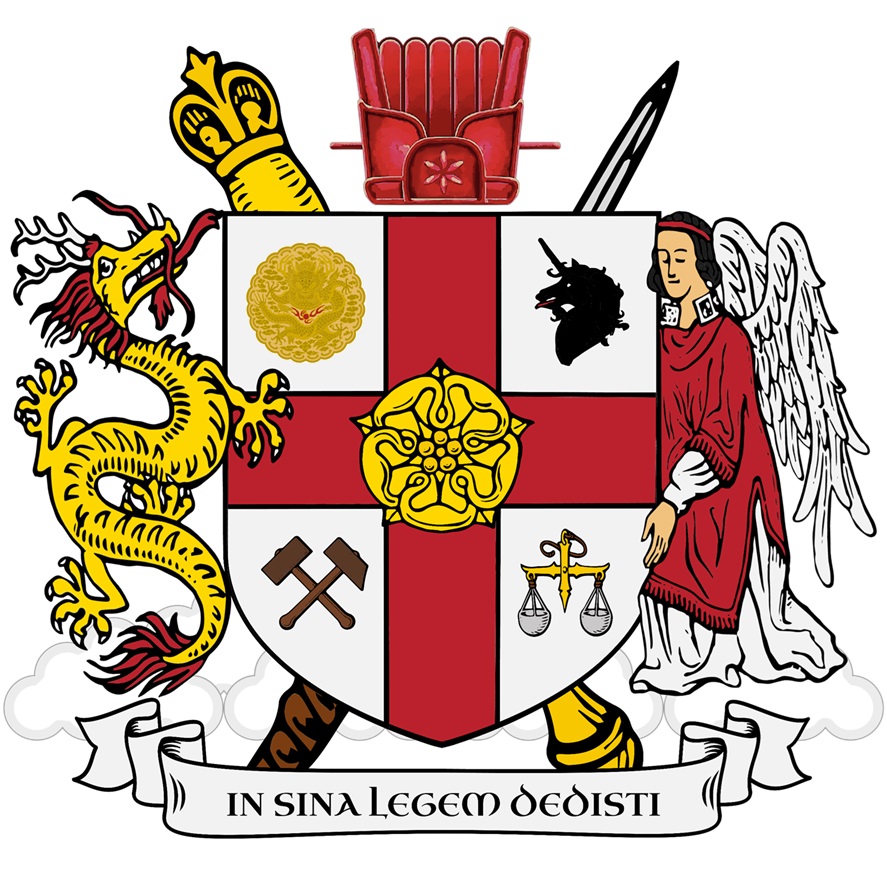THE SUPREME COURT OF JUSTICE
대리재판소

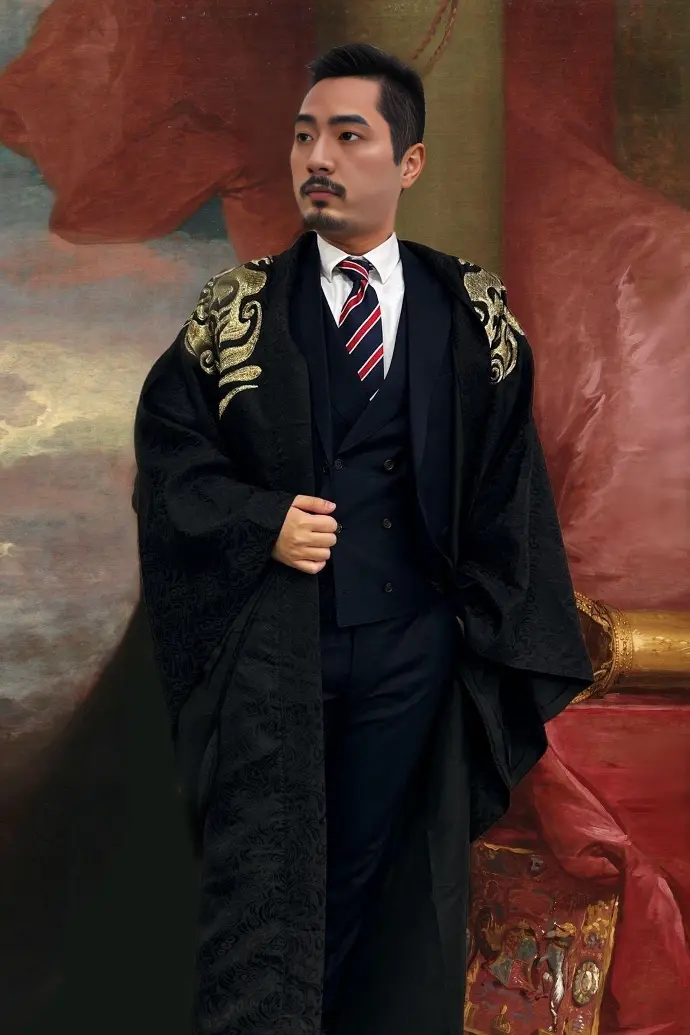
As Lord Chancellor of the Myeong Commonwealth, I pledge to follow the shining examples of the ancient Hwaha judge Sage Goyo (고요) and English Lord Chancellor Saint Thomas More in keeping the Emperor’s Conscience, the independence of the courts, the rule of virtue and the rule of law, all in accordance with the Law of God as demanded by our venerable Constitution.
I will advocate human rights and freedoms as the Secretary of Justice.
I will defend parliamentary privilege as the Lord President of the Confederal Council.
I will resist the Emperor and the Prime Minister whenever they act against divine law and the Constitution as the Lord President of the Privy Council. I will decide cases equitably as Lord President of the Court of Appeals.
And if one day, God forbid, I must be martyred to defend the above principles—forgive me, Your Majesty—I would speak none other than Lord Chancellor More’s final words: ‘ I am the Emperor’s good servant, but God’s first.'
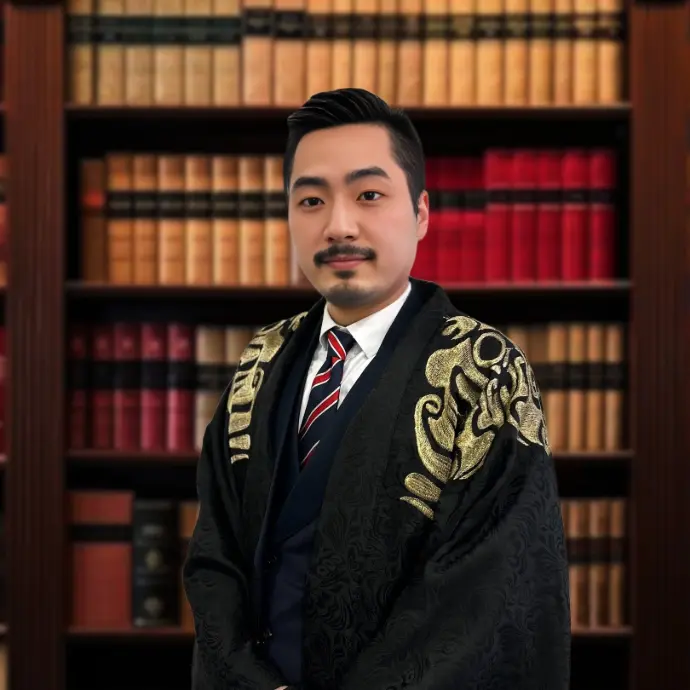
THE MYEONG CONFEDERAL JUDICIAL HIERARCHY
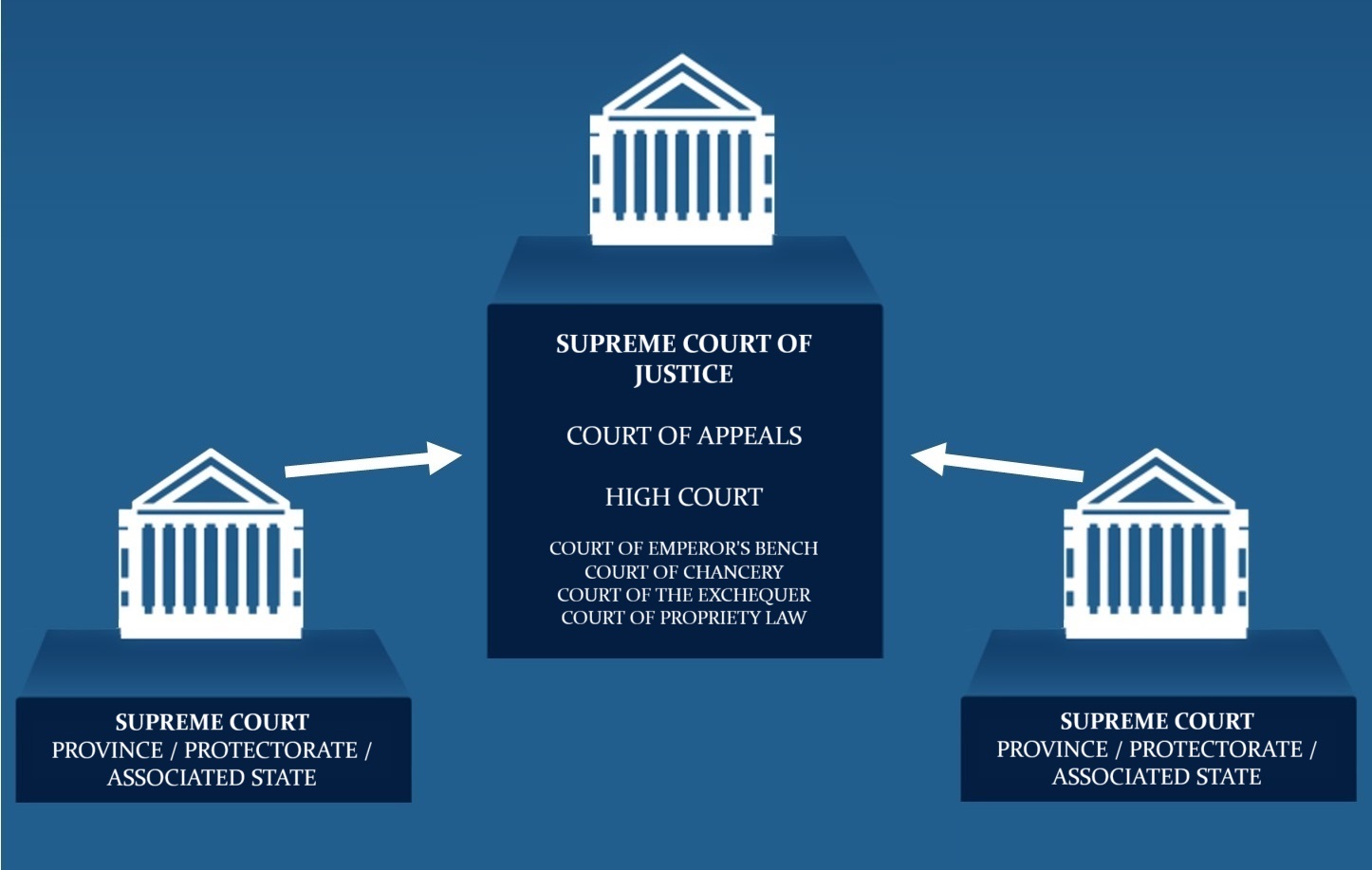
The Supreme Court of Justice (대리재판소) serves as the micronational successor to the historic Pyeongliwon (평리원) of the Daehan Empire. It maintains an independent role, delivering authoritative and consistent legal interpretations across various levels for the Provinces, Protectorates, and Associated States of the Myeong Commonwealth.
The Court encompasses a Court of Appeals (항소법원), presided over by the Lord Chancellor as Lord President (Hanja: 大理官; Hangul: 대리관), which acts as the final authority on confederal civil and criminal matters. Additionally, it includes a High Court (고등법원), led by the Lord Chief Justice (대리재판소장), serving as the court of first instance for such matters. The High Court comprises several specialised divisions: the Court of Emperor’s Bench (어좌법정) (handling constitutional, criminal, and civil cases), the Court of Chancery (의리법정) (addressing equity matters), the Court of the Exchequer (세무법정) (dealing with taxation), and the Court of Propriety Law (예법법정) (overseeing ritual and ethical issues).
Judges of the Supreme Court of Justice are appointed by His Majesty The Emperor, upon the recommendation of an independent statutory commission.
THE OFFICE OF THE LORD CHANCELLOR
The modern office of the Lord Chancellor, partly evolved from the office of Hanlimwon Seungji (Hanja: 翰林院承旨; Hangul: 한림원 승지) of the Ming Empire, and partly inspired by its namesake in medieval England, is a cornerstone of the Myeong Commonwealth's constitutional framework, wielding a blend of authority and wisdom that safeguarded the balance between power and justice. It offers distinct advantages—bridging the judiciary, executive, and legislature with a rare combination of expertise, independence, and moral weight, contributing to stability, fairness, and the rule of law.
A Force for Harmony
The Lord Chancellor is a constitutional linchpin, harmonising three pillars of the Commonwealth. As Lord President of the Court of Appeals of the Supreme Court of Justice, he chairs an independent commission responsible for nominating senior judges for appointment by the Emperor, ensuring the bench is staffed with guardians of impartiality. As Lord President of the Privy Council and Secretary of Justice sitting as an ex officio Cabinet member, he brings the voice of justice to the heart of government decision-making. As Lord President of the Confederal Council, he guides business in the upper chamber of the Commonwealth Assembly with a steady hand. This threefold role allows the Lord Chancellor to foster cooperation across branches, preventing the kind of gridlock that can arise in systems with inflexible separation of powers.
Guardian of Judicial Independence
The greatest strength of the Lord Chancellor is his role as the champion of the Supreme Court of Justice within His Majesty's Government. Unlike modern systems where courts lack a direct advocate at the centre of the political process, the Lord Chancellor stands as a towering defender of the rule of law. Typically a seasoned lawyer called to the inner bar holding the title of 'SC' (Suzerain's Counsel), appointed late in a distinguished career, the Lord Chancellor is free from the pull of political ambition. This independence gives him the courage to speak truth to power as the judiciary's representative in the cabinet. When the Prime Minister proposes a policy that risks overstepping legal bounds, the Lord Chancellor can firmly declare, 'No, this is unlawful.'
A Check on Executive Power
In a system where the Government often holds sway over the Commonwealth Assembly, especially with primary legislation, the Lord Chancellor offers an essential restraint on executive overreach. His presence in Cabinet is a living reminder that power must bow to principle. Article VI(2) of the Constitution provides that, 'Whenever practicable, the Lord Chancellor shall abstain from presiding over any case in which there is a realistic possibility of an apparent or actual conflict of interest.' This constitutional provision guarantees the Lord Chancellor's ability to navigate potential conflicts with integrity, turning a complex role into a strength. By balancing his political duties with a fierce commitment to fairness, the Lord Chancellor prevents His Majesty's Government from straying too far from the path of law—a safeguard all the more valuable in a Constitution that relies on ritual propriety over legalistic barriers.
The Lord Chancellor, at his finest, is not just an office but a promise—that justice would always find its place in the heart of power.
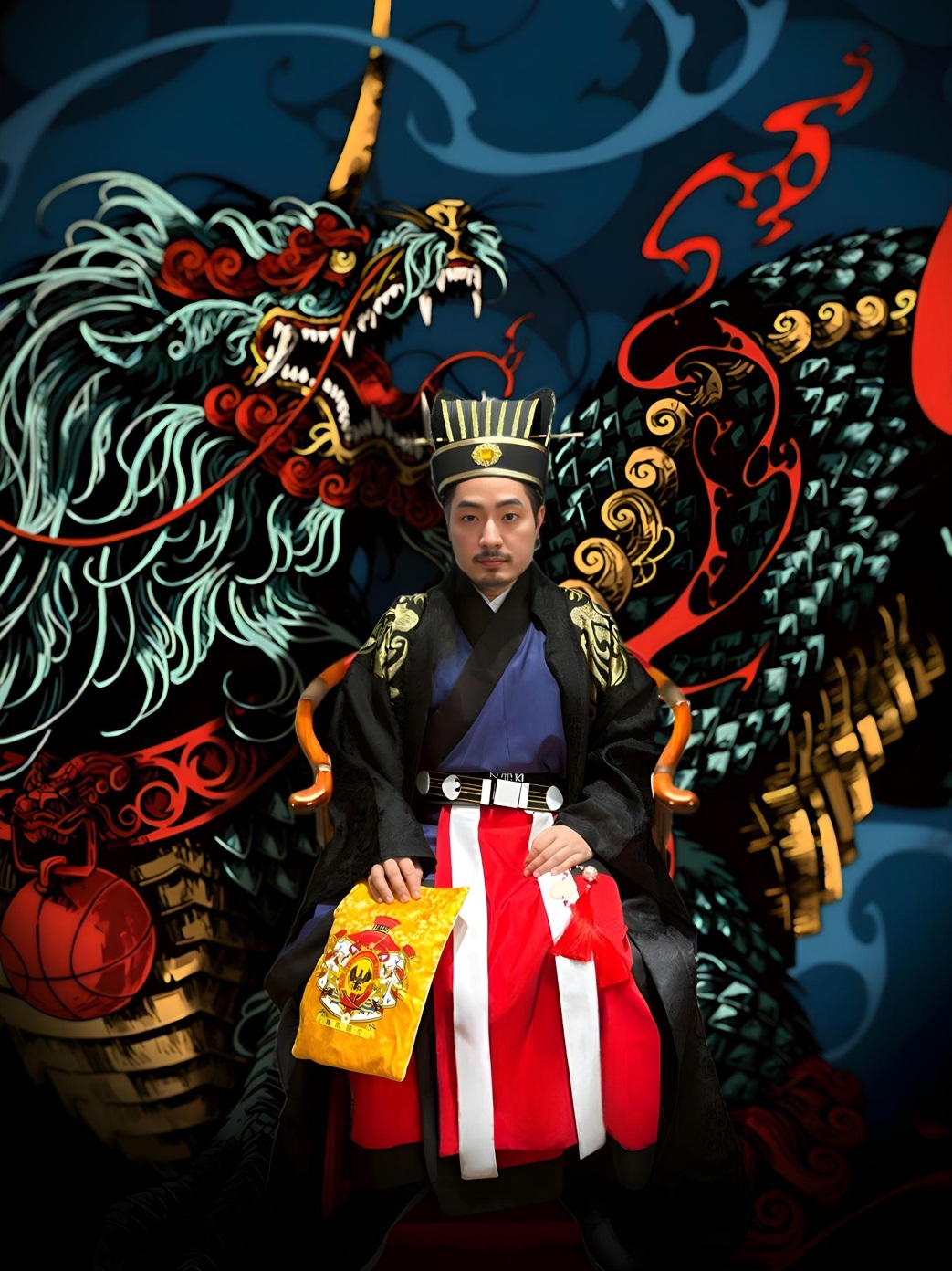
THE RT HON LORD MUK, LORD CHANCELLOR
Lord Muk, born Muk Yi-lak, was elevated to the peerage as Duke of Yeongguk in 2023 by His Majesty The Emperor, reviving a historic title dormant since the martyrdom of the last Ming Duke of Yeongguk in 1644. The Duchy, originating in the 10th century BC, traces its lineage to Sage Goyo, a revered judge of ancient East Asia renowned for his wisdom and fairness. The Ming Dukes, hereditary titleholders of the Chang family, were distinguished military commanders.
Initially a successful businessman, Lord Muk later pursued legal studies, qualifying as an attorney and practising with distinction. In January 2024, on the recommendation of an independent commission, His Majesty appointed him Lord Chancellor, recognising his legal acumen and integrity.
A distinguished scholar of rites and the Lord Patriarch of the Supreme Confucian Congregation, Lord Muk was further entrusted by His Majesty in 2024 to compile the Ritual Code of the Myeong Commonwealth. This seminal work adapted Confucian principles of ceremonial procedure, propriety, and etiquette to contemporary needs, earning him the sobriquet of a ‘living sage’. His contributions to law, governance, and cultural scholarship reflect an enduring commitment to justice and tradition, embodying the storied legacy of the Yeongguk title.
In April 2025, Lord Muk was appointed Dean and Chair of Sage Goyo Law School at Sage Paul University.
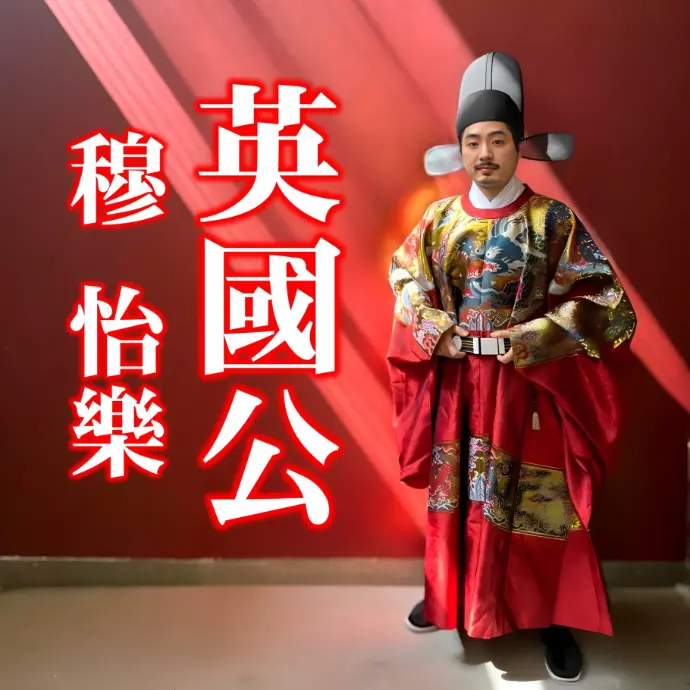
THE COAT OF ARMS OF LORD MUK
The Yanggwan, a red coronet, is the ceremonial headgear of Ming Empire officials, symbolising the Lord Chancellor’s solemn duty to serve God and uphold justice as Lord President of the Privy Council. Its crimson hue reflects his spiritual and secular authority and willingness to sacrifice for justice and the rule of law.
The Golden Mace represents the Lord Chancellor’s presidency over the Confederal Council and the Myeong Commonwealth's Westminster-style parliamentary democracy. The Sword signifies the Duke of Yeongguk’s nobility and rulership over the Duchy, honouring Lord Chancellor Saint Thomas More, his martyred English predecessor.
The Saint George’s Cross shield embodies the Duchy’s heritage, while the Dragon Totem denotes the Duke’s role as Lord President of the Privy Council. The Hammer and Mallet symbolise judicial and executive authority as Lord President of the Court of Appeals and Secretary of Justice, respectively.
The Scales reflect the pursuit of equity, central to the Lord Chancellor’s mission as President of the Court of Chancery. The Unicorn, a nod to judicial independence and impartiality, evokes Sage Goyo and Saint Thomas More. The Golden Rose collar pays tribute to More’s distinguished legacy.
The Dragon Supporter signifies the Emperor's sovereignty, and the Angel Gabriel, dressed in scarlet and white, represents the Duchy’s patron, Sage Goyo, and Myeongean simplicity. The motto, In Sina Legem Dedisti, underscores the divine law guiding the Lord Chancellor’s mission to foster sagehood through the propagation of civilisation.
